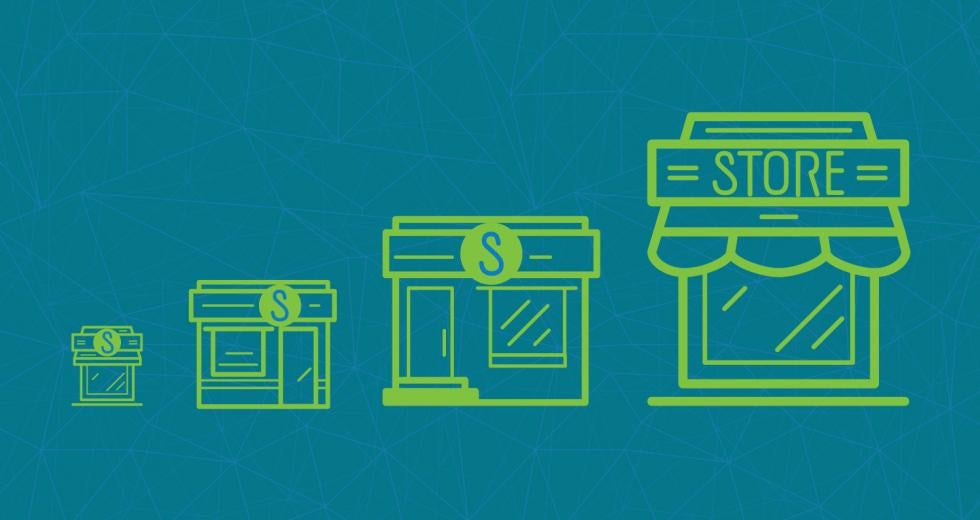/skāləbəl/, adj.
An ability to invest time and energy in systems that allow small businesses to grow while still handling increased demands.
Say you’re a new business owner, trying to get the word out about your amazing product or service. You do whatever you can to get clients, even if it means taping up flyers or sending individual personalized emails. But, as you’re reminded time and time again by mentors and colleagues, that’s simply not “scalable.”
Scalability is the idea that how a young business functions now — such as investing significant personal time with every would-be client — can’t continue as the company grows. It’s not sustainable. But just because a strategy won’t translate to a larger workflow, does that mean the foundation of the business isn’t solid?
The Buzz
Obviously, your goal is to put in place systems and processes that won’t break down and that you can build upon. Your mode of operation needs to grow just as fast as your customer base does. Most entrepreneurs worry (understandably) that you can’t eventually increase revenue if you’re bogged down in a bunch of minute tasks.
When Sacramento-based Grin was first trying to find clients for their software, which connects companies to relevant social media influencers, “We were taking on any client just to get people in the door,” says Brian Mechem, COO and co-founder.
Mechem and co-founder Brandon Brown found themselves covering any role their new clients required — such as acting as a full-service marketing firm and running influencer marketing campaigns for clients — to prove that they were capable of handling client needs. “That wasn’t scalable for us over time,” Mechem admits.
The Word
But the activities of Grin in those early days got clients in the door, and Mechem says he doesn’t regret spending company time on un-scalable actions. These days, Grin has stopped offering fully-managed campaigns, and instead, clients come to the company to buy the software and learn to do it themselves. Mechem says a lot of entrepreneurs mistakenly believe that because an action isn’t scalable, they shouldn’t bother doing it at all: “I think the most common thing people don’t understand is there are certain things that are necessary, even if they’re not scalable.”
Importantly, Grin informed those early clients upfront that the company wouldn’t always provide those marketing services. “We said we’re willing to do this, keeping in mind that it’s not an extended engagement,” Mechem says. It was a test to see if the marketing software would work for clients’ needs, to show them the ropes and to demonstrate the value. The company then trained clients to use the product for themselves after a trial period. In this way, Grin was able to eventually make scalable both its product and its clientele.
Grin didn’t let a fear of scalability stop them from doing what needed to be done at the outset. “It might not be scalable, but that often doesn’t matter,” Mechem says. “Over time, you will build the efficient processes that can scale.”
Got a word thats been buzzing around your office? Tweet us @Comstocksmag with the hashtag #WhatstheBuzz



